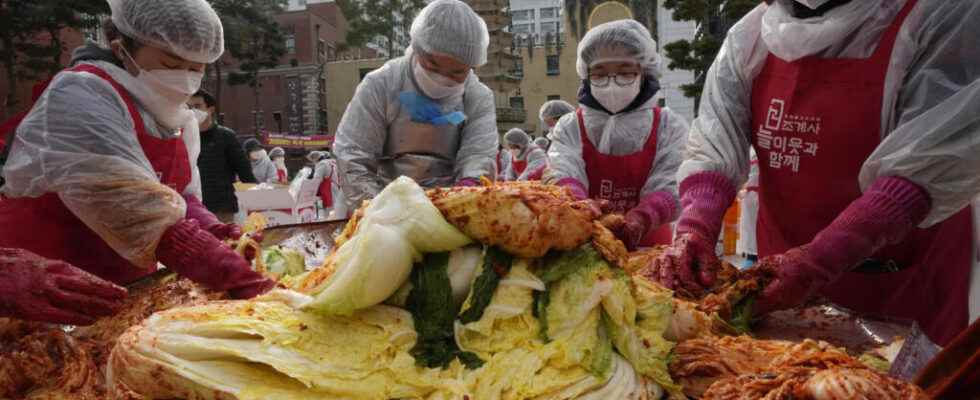Daesang, the Korean giant of kimchi, the typical Korean dish made from fermented cabbage and chilli, will open its first European factory in Poland by 2024. A sign of an increasingly close collaboration between the two countries.
From our correspondent in Warsaw,
Poland to conquer Europe. In order to flood kimchi European supermarkets increasingly in demand, Daesang has chosen to settle in the south of the country. The world leader in the sector has therefore teamed up with a Polish group that markets fermented cabbage. Amount of the operation: 11 million euros.
A logical choice when looking at Polish and South Korean plates. Composed of fermented cabbage, garlic and chilli, the kimchi almost always accompanies the flagship dishes of Korean cuisine such as bibimbap (mixture of rice and vegetables) and the bulgogi (a kind of barbecue). In Poland, fermented cabbage is found especially in bigosthis traditional dish served during the Christmas period.
Logical also from the agricultural point of view. With approximately 1 million tonnes of cabbage grown each year, Poland is the leading producer country in the European Union. Daesang will probably have no trouble getting vegetables. It thus hopes to produce 3,000 tonnes of kimchi per year.
But fermented cabbage is just an appetizer on the negotiating table between Seoul and Warsaw. The two countries are multiplying partnerships, especially since the start of the war in Ukraine. Faced with the threat of potential Russian aggression, Warsaw has decided to equip itself with one of the largest armies in Europe. The defense budget exploded, and Poland multiplied contracts for foreign weapons. She ordered nearly 900 combat tanks, more than 600 howitzers and about fifty fighter planes from South Korea. Some will even be delivered before the end of the year. All for nearly 15 billion euros, the largest arms export deal ever made by Seoul.
Energy Partners
The war in Ukraine has also highlighted Europe’s energy dependence on Russia. Poland, where 70% of electricity is produced using coal, is particularly concerned. The halt in Russian imports and the explosion in prices therefore prompted the government to turn to nuclear power, choosing at the end of October the American company Westinghouse to develop its first power plant. South Korea should not be outdone, however: it should build a nuclear reactor instead of a complex of thermal power plants owned by Michał Sołowow, the richest man in Poland according to Forbes.
This partnership should also allow the Polish government to fulfill its objectives in terms of ecology. A European bad student in terms of greenhouse gas emissions and global warming, Warsaw hopes to be able to say goodbye to coal by 2050. If the current geopolitical context has forced the ruling party to revise its ambitions downwards, in particular by postponing the closure of certain mines, the partnership with South Korea gives it some hope.
Another contract signed with Seoul allows him to press on these intentions. SK Nexilis, a South Korean manufacturer of copper sheets used in batteries, has invested 627 million euros to open a factory in Poland. “We bet on technologies that will allow us to use new sources of energy“, had welcomed Jacek Sasin, the Minister of State Property, during the signing. Even so, the Polish government still opposes the European Union’s plan to ban gasoline and diesel car sales by 2035.
